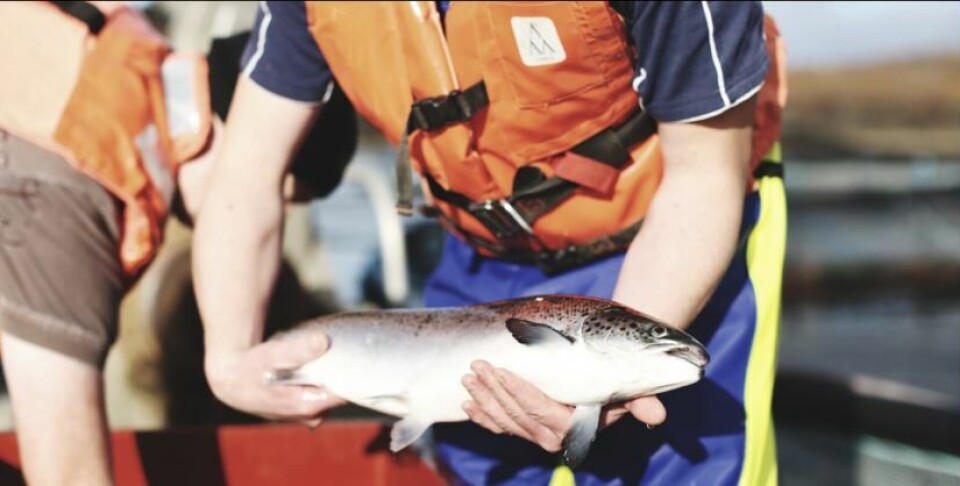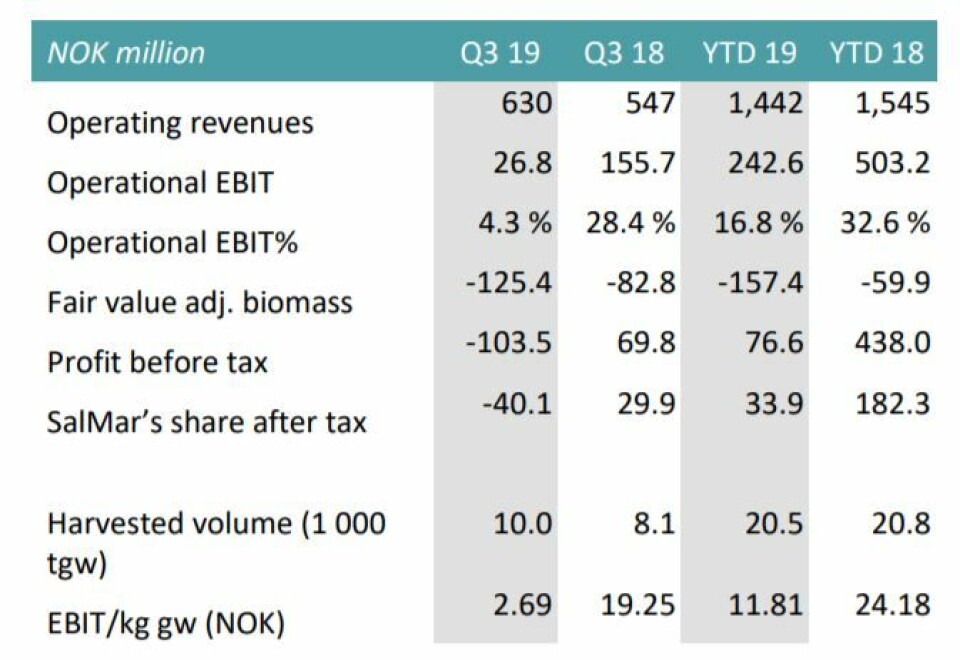
Gill health issues force Scottish Sea Farms to cut harvest target
Scottish Sea Farms has lowered its projected harvest volume for 2019 by 3,000 tonnes to 27,000 tonnes following a third quarter in which its fish were hit hard by gill disease.
Co-owner SalMar said in its third-quarter report that operational performance from SSF’s activities in Shetland and Scotland had been affected by earlier than planned harvest of fish due to illness. This had reduced the average weight of the fish harvested, increased costs and reduced the price the company was able get for its fish.
SSF harvested 10,000 tonnes of salmon in Q3, compared to 8,100 tonnes in the same period last year. Revenue was NOK 629.5 million (£53.3m), compared to NOK 547.3m in Q3 2018, with the increase attributed to the larger volume.

Pre-tax loss
Operational EBIT dropped to NOK 26.8m (Q3 2018: NOK 155.7m) and SSF made a pre-tax loss of NOK 103.5m, compared to a pre-tax profit of NOK 29.9m in Q3 last year.
EBIT per kg gutted weight came to NOK 2.69 for the period, compared with NOK 18.37 per kg for the previous quarter and NOK 19.25 per kg for the same period last year.
SSF yesterday announced that it had bought a new £1.9m workboat, the Fair Isle, which will increase response times to gill health issues.
Challenging summer
The company’s head of fish welfare, Dr Ralph Bickerdike, said summer 2019 had been particularly challenging, with an increased number of SSF farms experiencing gill health issues that had impacted on fish growth and survival.
“The ongoing priority is to prevent gill health from ever becoming such an issue. Investing in our ability to respond swiftly with the addition of the Fair Isle is an integral part of that strategy,” said Bickerdike.
He added that SSF had achieved 88% survival at sea in 2019 to date despite the health challenges.
SSF is jointly owned by Norwegian salmon farmers SalMar and Lerøy through a holding company, Norskott Havbruk.
Sea temperatures
The company is not the only Scottish fish farmer to struggle in the second half of the summer.
Scotland’s biggest salmon farmer, Mowi, recently revealed that incident-based mortality related to an algal bloom at its Rum site and fish health issues amounted to €8.8m (£7.5m) in Q3.
The company blamed at higher than average sea temperature throughout 2019 for a disappointing average survival rate of 76% for nine sites harvested over the last five months.
Grieg Seafood Shetland also reported that biological conditions have been challenging over the last year due to gill-related diseases, algae and plankton in combination with high sea lice pressure, although it was able to increase the 12-month rolling survival rate from 83% at year-end 2018 to 87% in Q3.























































